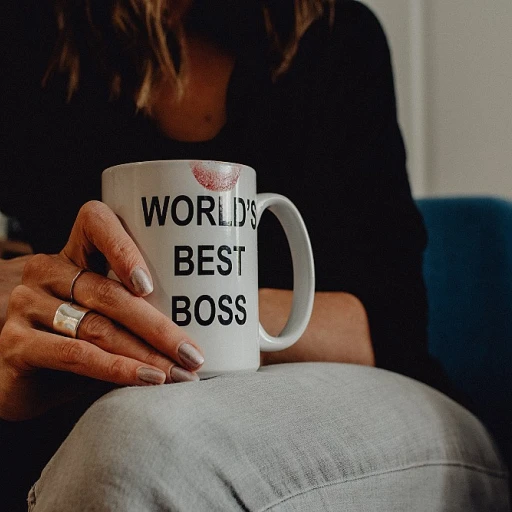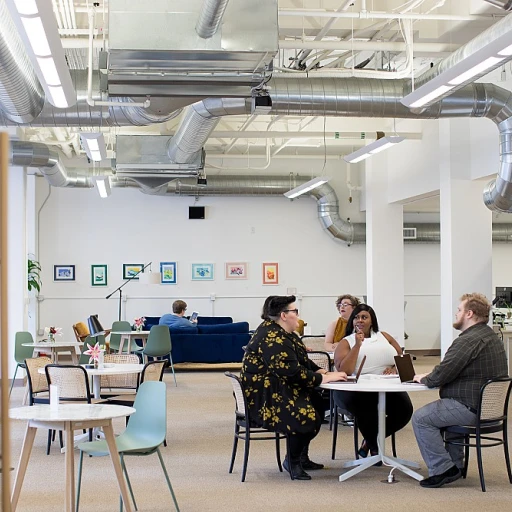Understanding the Interview Process
Deciphering the HR Interview Journey
Embarking on the journey of a job interview with the HR department can often feel like navigating uncharted waters. Understanding the intricacies of the interview process is crucial as it lays a strong foundation for your preparation and eventual success. Firstly, it’s essential to familiarize yourself with the different stages of the hiring process. Typically, it begins with a screening interview, often conducted over the phone or virtually, to assess basic qualifications. If successful, this is followed by one or more in-person interviews, either with HR representatives or the team you aim to join. Recognizing these stages helps you tailor your preparation according to their demands. Furthermore, each company might have specific formats or unique steps within their interview process. For instance, some organizations incorporate assessment tests or group interviews as part of their evaluation. Gathering information about these aspects in advance can provide you a strategic advantage. Each phase of the interview is an opportunity to showcase different aspects of your skills and personality. The HR interview often focuses on your cultural fit, communication skills, and how you align with the company's values. Preparing effectively for this section of the process requires humility and self-awareness, ensuring you present yourself authentically. Prepare comprehensively considering these steps, and you will find yourself more confident and adaptable, ready to tackle each part with precision. While this foundation sets the stage, crafting tailored answers to common interview questions and mastering non-verbal cues are your next steps in achieving a successful interview outcome.Common Interview Questions and How to Answer Them
Acing Classic Interview Queries
Preparing for an HR interview means you'll likely face a range of questions that are staples in the interview process. These questions are designed to explore various aspects of your professional journey, skills, and personality. One of the most common questions is the classic "Tell me about yourself." This is your chance to create a strong first impression. Instead of recounting your entire resume, offer a brief summary that highlights your career trajectory, key achievements, and how they align with the role you're applying for. Interviewers might also ask about your strengths and weaknesses. When discussing your strengths, choose those that are directly relevant to the job. Provide examples that demonstrate how you've successfully used these strengths in a professional context. As for weaknesses, pick an area where you've successfully implemented strategies to improve. Behavioral questions, like "Describe a challenge you faced at work and how you overcame it," are also popular. Use the STAR method (Situation, Task, Action, Result) to effectively structure your response, showcasing your problem-solving skills and resilience. Remember, understanding the interview process as a whole and researching the role and company further strengthens your ability to tailor these answers effectively. When you back up your responses with specifics related to the company, as mentioned in part 3 of the article, it shows that you have a genuine interest in the role and the organization's mission. This can set you apart from other candidates vying for the same position. It's also crucial to prepare a few questions of your own to ask the interviewers. These questions not only help you determine if the company is a good fit for you but also show your enthusiasm and engagement. Consider asking about the team dynamics, opportunities for growth, or how the company supports professional development. Ultimately, thorough preparation for these common questions can greatly enhance your confidence and performance during the interview.Researching the Company and Role
Dive Deep into Company Insights and Role Expectations
When preparing for an HR interview, one of the most effective strategies is to thoroughly research the company and the specific role you're applying for. This step not only demonstrates your genuine interest but also equips you with the knowledge to tailor your answers to align with the company’s values and objectives. Start by exploring the company’s website, focusing on the 'About Us' and 'Our Values' sections. These resources provide valuable insight into the organization's mission, culture, and forward-looking goals. Additionally, current news articles, press releases, and industry reports can offer a broader view of the company's recent achievements and strategic direction. Understanding the role involves diving into the job description and identifying the key responsibilities and required skills. Compare these requirements to your own experiences and accomplishments, and prepare to discuss specifics during your interview. This approach not only helps you stand out but also ensures you present yourself as the perfect fit for the role. Don’t forget to leverage professional networking sites like LinkedIn. Identify connections who have experience with the company or are familiar with it. Their insights can provide practical information about the work environment and expectations. By carefully researching both the company and the role, you are better positioned to address common HR interview questions with confidence and relevance. This preparation can make all the difference in showcasing your enthusiasm and readiness to contribute to their team. For more on how to ace common HR interview questions, explore our detailed guide here. Your preparation will greatly benefit from understanding not just the questions themselves, but the rationale and strategy behind crafting standout responses.Mastering Body Language and Eye Contact
The Art of Nonverbal Communication in HR Interviews
Mastering the nuances of body language and eye contact can greatly impact the success of your HR interview. While you may have honed articulate responses to potential questions (as covered in other sections), how you present yourself nonverbally is equally telling about your professional demeanor. Start with a confident posture. Sitting up straight with your shoulders back not only conveys confidence but also helps you breathe properly, providing you with more control over your speech. Subconsciously, your interviewers will perceive you as poised and capable. When it comes to eye contact, striking the right balance is essential. Maintaining a friendly gaze fosters a connection with your interviewer. However, be mindful not to stare, as this may come across as confrontational or uncomfortable. Instead, aim to hold eye contact for a few seconds before naturally looking away, which shows respect and attentiveness. Other elements like nodding and smiling can make you seem engaged and enthusiastic about the role. A well-placed nod indicates understanding and agreement, signaling to your interviewer that you're processing the information. A genuine smile can relax both you and the interviewer, creating a positive atmosphere during the conversation. Another crucial aspect is managing nervous gestures. Fidgeting, tapping pens, or playing with your hair can distract from your professionalism. Practice your interview responses in front of a mirror or record yourself to become aware of any habits that might divert attention. Remember, body language should reinforce your verbal communication, emphasizing your readiness for the position. Pair these nonverbal cues with the substantive preparation from other sections to present an integrated impression during your HR interview.Avoiding Common Interview Mistakes
Steer Clear of These Interview Pitfalls
While you've likely spent time understanding the interview process and crafting answers to common questions, it's equally important to be aware of the potential pitfalls that could undermine your efforts. Avoiding these common interview mistakes can help you present your best self to potential employers.
Overlooking Company Research: Not having a solid grasp of the company and role can make you seem uninterested or unprepared. Refer back to your research efforts to ensure you can speak knowledgeably about the organization and how you can contribute to its success.
Neglecting Body Language: Remember that communication is more than just words. Mastering body language and maintaining eye contact can convey confidence and enthusiasm. Avoid crossing your arms or looking at your phone during the interview.
Rambling or Being Too Vague: When answering questions, aim for clarity and conciseness. Structure your responses to be direct and relevant, avoiding unnecessary details that can detract from your main points.
Failing to Ask Questions: Interviews are a two-way street. Not asking questions can be perceived as a lack of interest. Prepare thoughtful questions that demonstrate your engagement and curiosity about the role and company culture.
Forgetting to Follow Up: After the interview, a timely and well-crafted thank-you email can leave a lasting impression. Express gratitude for the opportunity and briefly reiterate your enthusiasm for the position.
By being mindful of these common mistakes, you can enhance your interview performance and move one step closer to securing your desired role.








